Gold Coast weather: Famous floods and storms destroy beaches and Surfers Paradise streets
It’s the wettest February on record for the Gold Coast as heavy rain hammers the city. But it’s not the first time - These are our most famous wet weather moments.
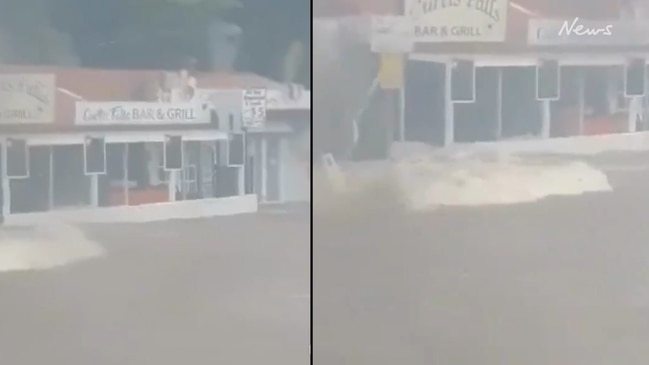
Gold Coast
Don't miss out on the headlines from Gold Coast. Followed categories will be added to My News.
IT’S been another wet week for the Gold Coast.
Ex-tropical Cyclone Uesi raged off the coastline, delivering a downpour which saw dramatic flooding along the Coomera River, Oxenford Weir and even on Tamborine Mountain.
And it’s only been a month since the last major storm which led to parts of Southport and Labrador transforming into inland rivers.
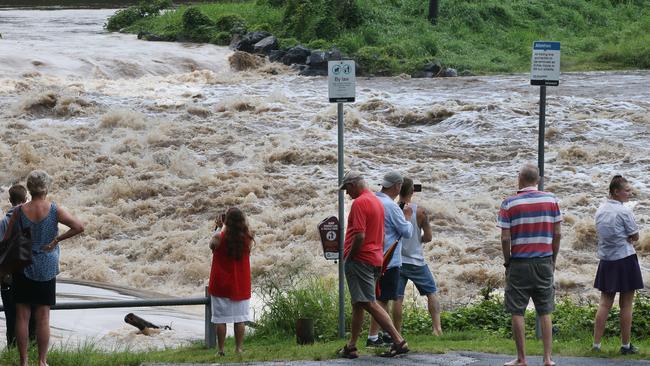
But wild weather is nothing new for the region.
Back in the late 19th century the small Southport township was hit hard in the early 1890s when the area’s famous pier was heavily damaged by flooding, wrecking its swimming baths.
Fast-forward to the 1960s and the Coast bore the brunt of a devastating cyclone season.
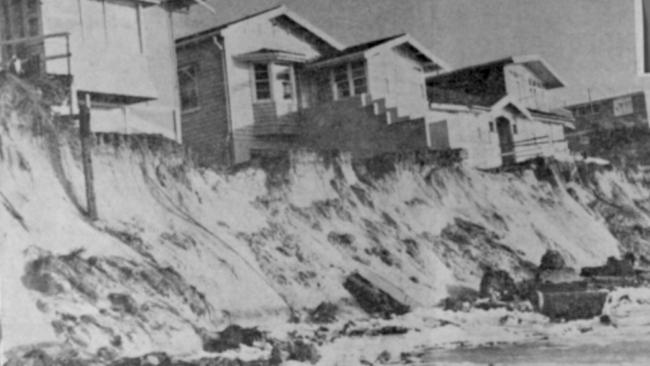
In January 1967 Cyclone Dinah moved down the coastline off the Coral Sea.
While never crossing the coast, it caused havoc in Surfers Paradise where the Nerang River burst its banks.
Streets were flooded while the beaches were heavily eroded and part of The Espalande collapsed leaving a 5m hole near Staghorn Ave.
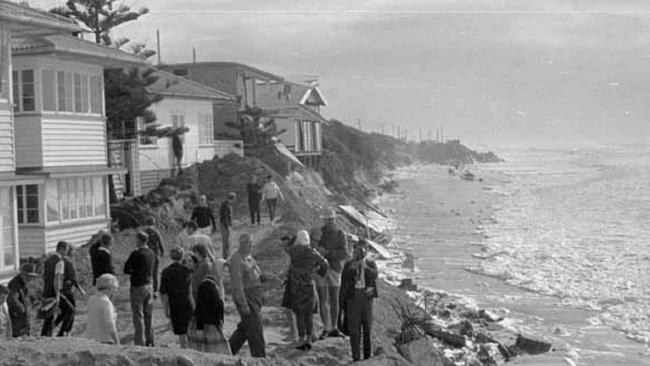
During the 1967 storms, more than 1000mm fell on the Hinterland, while Springbrook recorded a 1631mm fall.
The damaged to the Coast was significant, as photos went around the world showing the city’s ruined beaches.
With tourism already a major industry for the city, it forced urgent action from Mayor Sir Bruce Small.
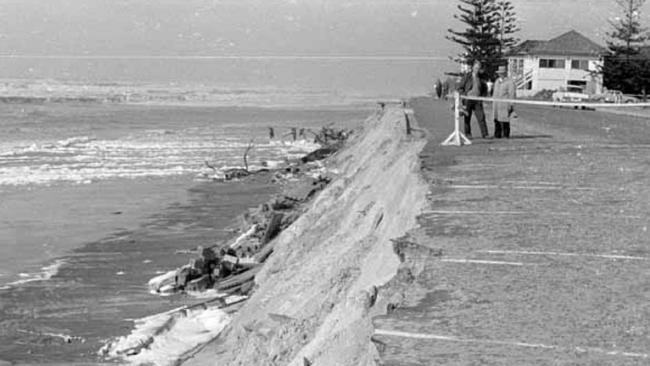
Newly elected to the office, Sir Bruce understood that drastic action was needed to boost the region’s reputation and so he undertook one of his most famous adventures - he took the famous Surfers Paradise Meter Maids on tour to cities such as Sydney and Melbourne to spruik the Gold Coast.
A success, it put the Coast back on the map and became an iconic moment of Sir Bruce’s tenure.
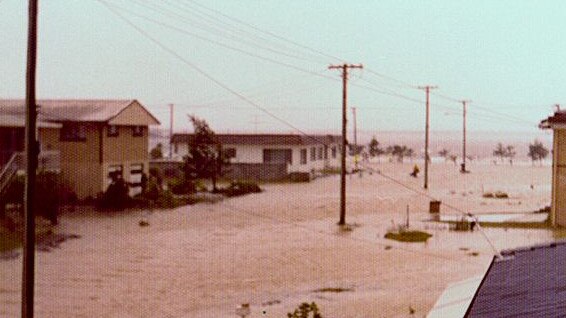
But nature’s fury made itself known again in 1974 when Tropical Cyclone Wanda hit, flooding 1500 homes.
More than 1250mm of rain fell on the Hinterland and the streets of Surfers Paradise. When the Nerang River broke its banks, floodwaters rose waist-high.
Brisbane was flooded after more than 314mm of rain fell, the wettest day in the state’s capital since 1887. On the Coast, the canals overflowed and the Nerang River rose, sending the waters flowing into the Glitter Strip’s streets.
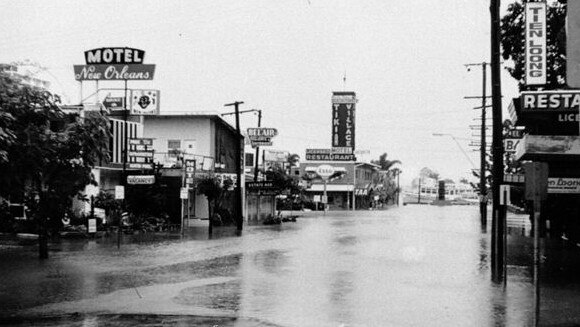
More than 2000 people were evacuated as water filled Cavill Ave and other major roads.
It was more than 30 years before another major disaster struck - the June 30, 2005 floods which came after days of downpour and was described as a “once in 100 year event”.
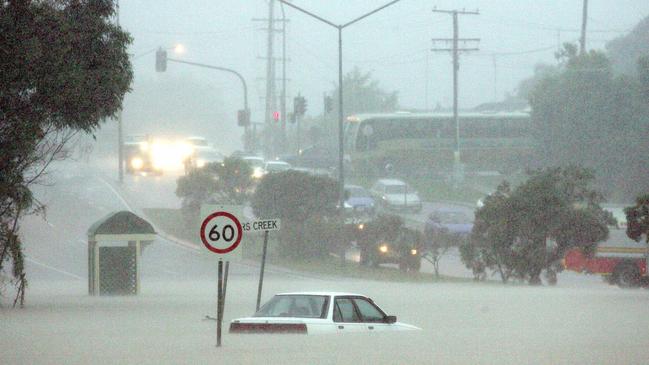
The midwinter event led to two deaths and major landslides on the southern Gold Coast, while the city’s stormwater drains struggled to cope with the sheer amount of rain.
The Gold Coast avoided another major round of damage until January 2013 when Tropical Cyclone Oswald arrived.
Over the four-day period covering the Australia Day long weekend, Springbrook took in 1453mm of rain, the highest of any location in the state.
The Gold Coast’s beaches were devastated, with significant erosion up and down the coastline.
While the storm soon passed, the compensation battle for State Government disaster relief money raged on unsuccessfully.


